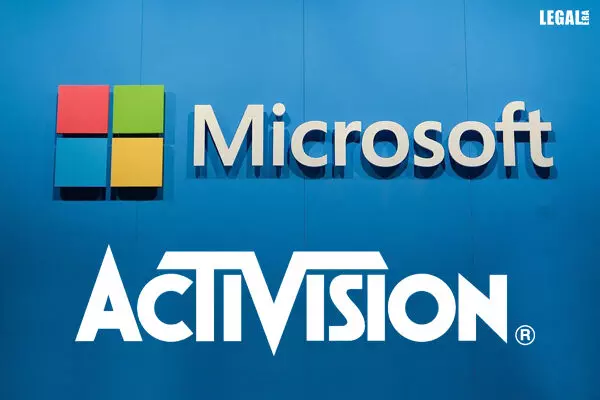- Home
- News
- Articles+
- Aerospace
- Artificial Intelligence
- Agriculture
- Alternate Dispute Resolution
- Arbitration & Mediation
- Banking and Finance
- Bankruptcy
- Book Review
- Bribery & Corruption
- Commercial Litigation
- Competition Law
- Conference Reports
- Consumer Products
- Contract
- Corporate Governance
- Corporate Law
- Covid-19
- Cryptocurrency
- Cybersecurity
- Data Protection
- Defence
- Digital Economy
- E-commerce
- Employment Law
- Energy and Natural Resources
- Entertainment and Sports Law
- Environmental Law
- Environmental, Social, and Governance
- Foreign Direct Investment
- Food and Beverage
- Gaming
- Health Care
- IBC Diaries
- In Focus
- Inclusion & Diversity
- Insurance Law
- Intellectual Property
- International Law
- IP & Tech Era
- Know the Law
- Labour Laws
- Law & Policy and Regulation
- Litigation
- Litigation Funding
- Manufacturing
- Mergers & Acquisitions
- NFTs
- Privacy
- Private Equity
- Project Finance
- Real Estate
- Risk and Compliance
- Student Corner
- Take On Board
- Tax
- Technology Media and Telecom
- Tributes
- Viewpoint
- Zoom In
- Law Firms
- In-House
- Rankings
- E-Magazine
- Legal Era TV
- Events
- Middle East
- Africa
- News
- Articles
- Aerospace
- Artificial Intelligence
- Agriculture
- Alternate Dispute Resolution
- Arbitration & Mediation
- Banking and Finance
- Bankruptcy
- Book Review
- Bribery & Corruption
- Commercial Litigation
- Competition Law
- Conference Reports
- Consumer Products
- Contract
- Corporate Governance
- Corporate Law
- Covid-19
- Cryptocurrency
- Cybersecurity
- Data Protection
- Defence
- Digital Economy
- E-commerce
- Employment Law
- Energy and Natural Resources
- Entertainment and Sports Law
- Environmental Law
- Environmental, Social, and Governance
- Foreign Direct Investment
- Food and Beverage
- Gaming
- Health Care
- IBC Diaries
- In Focus
- Inclusion & Diversity
- Insurance Law
- Intellectual Property
- International Law
- IP & Tech Era
- Know the Law
- Labour Laws
- Law & Policy and Regulation
- Litigation
- Litigation Funding
- Manufacturing
- Mergers & Acquisitions
- NFTs
- Privacy
- Private Equity
- Project Finance
- Real Estate
- Risk and Compliance
- Student Corner
- Take On Board
- Tax
- Technology Media and Telecom
- Tributes
- Viewpoint
- Zoom In
- Law Firms
- In-House
- Rankings
- E-Magazine
- Legal Era TV
- Events
- Middle East
- Africa
Federal Court Dismisses Lawsuit Against Microsoft-Activision Merger

Federal Court Dismisses Lawsuit Against Microsoft-Activision Merger
The Federal Court of San Francisco has concluded the case related to Microsoft acquisition of Call of Duty developer Activision Blizzard. Microsoft won in a private consumer antitrust case challenging its planned $69 billion acquisition of Call of Duty developer Activision Blizzard.
The plaintiffs in this case were group of video game players, who had contended stating that the proposed acquisition will hurt market competition. However, the Court found that the contention ‘lacks allegations,’ and granted 20 days to the plaintiff to amend their legal argument.
The private lawsuit sought an order to block Microsoft from acquiring Activision. It was filed on behalf of 10 video game players in California, New Mexico, and New Jersey.
That lawsuit alleged Microsoft’s $68.7 billion acquisition of Activision Blizzard would unlawfully restrict competition in the video game industry.
The plaintiffs' broad claim that the merger may lead to ‘higher prices, less innovation, less creativity, less consumer choice, decreased output, and other potential anticompetitive effects,’ was deemed insufficient, by the US District Judge Jacqueline Corley.
According to Lawyer Joseph Saveri for plaintiff’s, they are currently planning to file an updated case with supplemental factual details to ‘address all of the ways in which the judge indicated we need to allege more.’
Judge Jacqueline Corley had canceled the hearing to decide whether to award a preliminary injunction. Further on 12, April there a status hearing will be conducted.
The case has been filed in the US District Court for the Northern District of California involving Demartini and Microsoft. Attorneys Joseph Alioto and Joseph Saveri from the Alioto Law Firm and the Joseph Saveri Law Firm, respectively, are representing the plaintiffs.
Since Microsoft announced in January 2022 that it planned to purchase Activision Blizzard, it has encountered with legal opposition from publishers, customers, and government authorities. The company is now under investigation for anticompetitive practices in both the European Union (EU) and the UK.
Though, the ruling in the dismissed gamers' lawsuit has no bearing on the Federal Trade Commission’s (FTC's) regulatory challenge against the largest-ever gaming sector merger in the US. Notably, private individuals may challenge mergers and acquisitions under US antitrust law, in addition to the government. The FTC has set a hearing for the evidence to be presented in early August.
The court ruling in this case represents Microsoft's latest victory in its legal confrontation with Activision Blizzard. The deal may still need to be negotiated with EU officials before it can be approved, but if Microsoft is successful in acquiring the video game company, it will be the beginning of its success in the video game industry.



